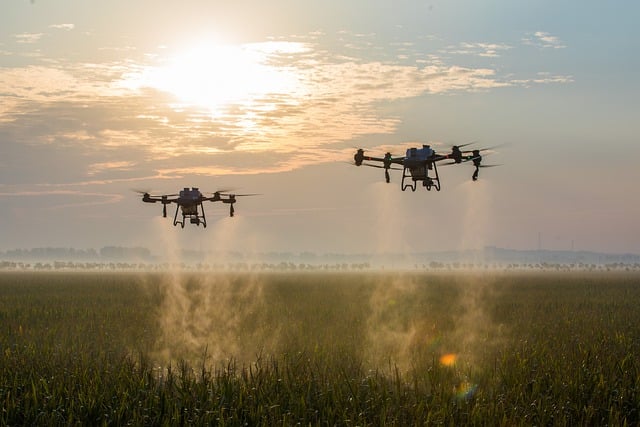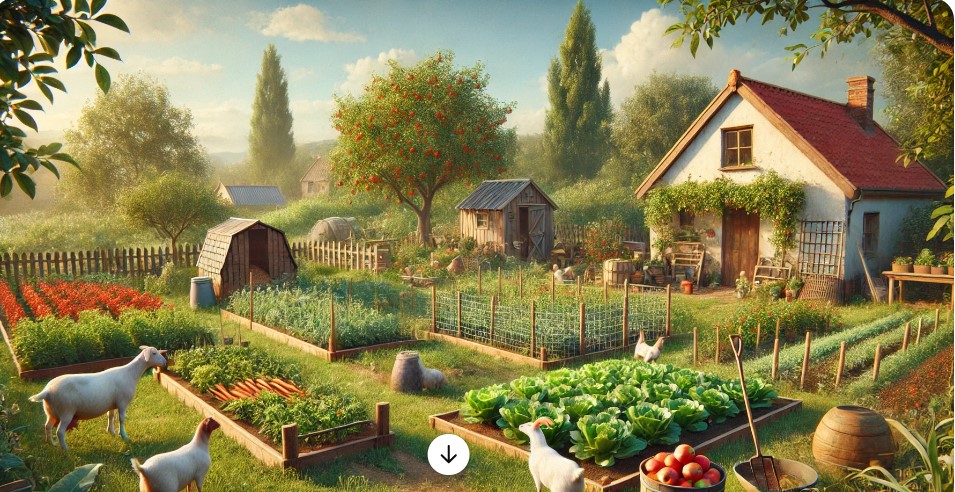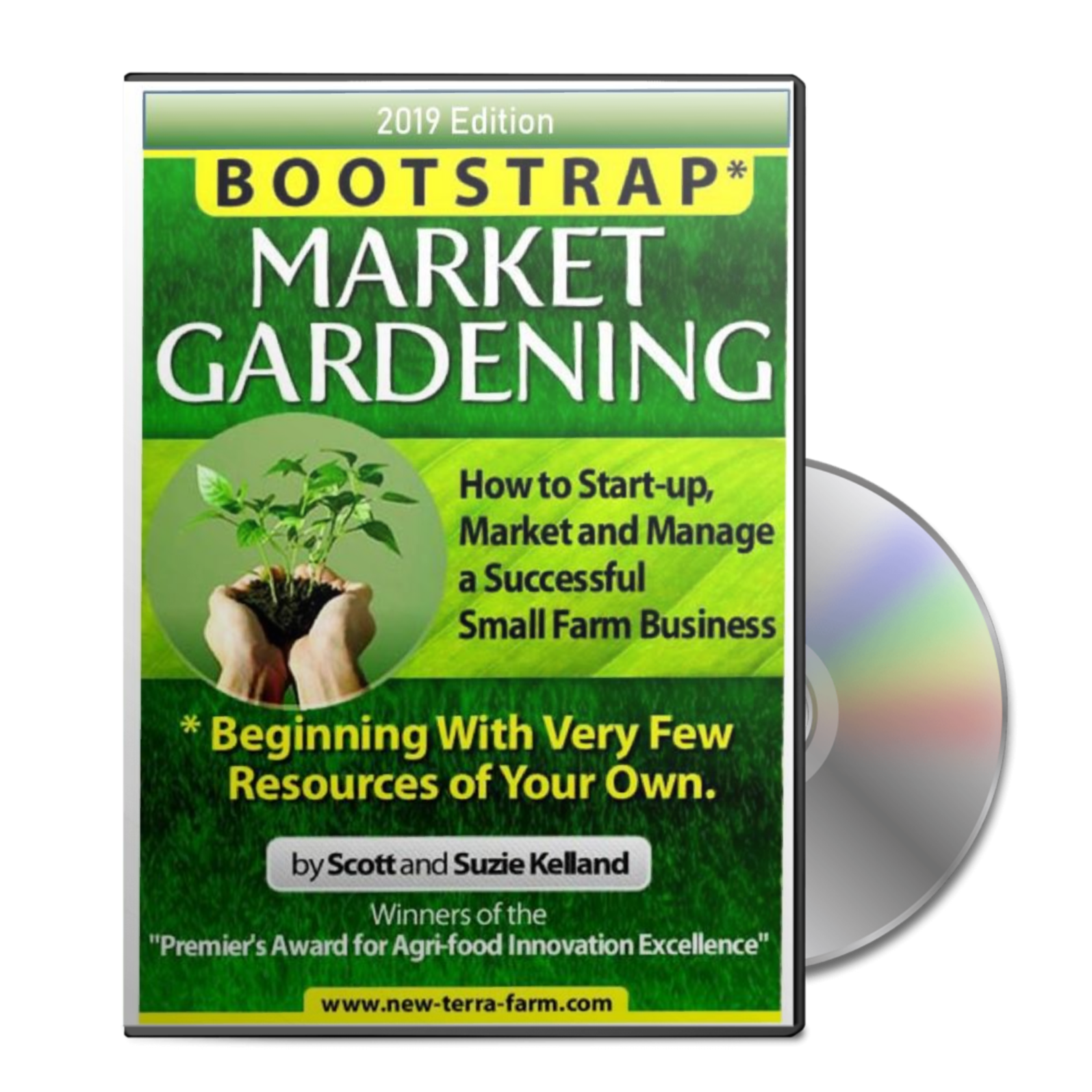Why Those 'Farm of the Future' Articles Miss The Mark
 The Farm of the Future according to some media types
The Farm of the Future according to some media typesI’ve been in the small farming game quite a while now. I’ve
noticed that lately in the news, the concept of micro farms has emerged as a source
of hope and innovation in agriculture i.e. the 'farm of the future'.
That’s a good thing. Don’t get me wrong, I’ve got ‘big farmer’ friends. No question that conventional farms feed the world (mostly) but that comes at a cost. The centralized agri-business model costs us in resource consumption and environmental impact associated with growing, refrigerating and transporting crops from where they are grown to where the customers are.
Micro farms do represent a shift towards sustainable, space-efficient, and community-centered food production systems. As the demand for local, organic, and fresh produce continues to rise, micro farms are gaining popularity for their ability to meet these needs while maintaining a much small environmental footprint.
Which brings me to my central thesis – The Farm of the Future IS a Micro Farm. But my reasons for believing this are NOT the conventional wisdom on the topic.
 My vision of the farm of the future
My vision of the farm of the futureThe Farm of the Future According to The Media
The typical mainstream media article or 60-second TV spot will talk about organic practices, reduced chemical inputs, and shorter supply chains and how this align with consumer preferences. They usually get in a comment about the desire for fresher, healthier, and more flavorful produce driving the growth of micro farms.
This is not wrong, but I don’t believe this accounts for the growing number of micro farms that are popping up.
Or sometimes media critters go the other way and the Farm of The Future features autonomous tractors planting seeds and flying drones zapping weeds with lasers.
That is no more sustainable than the current agri-business model.
And your typical young person who wants to make a living growing food (they are the real Future of Farming) is NOT going to pony up a couple million bucks to equip George Jetson's Farm.
Have these media types ever tried to start ANY business, let alone a small farm? I tend towards doubt.
So, speaking as someone who HAS launched a small mixed organic farm, let me tell you the secret to the spread of micro farms in one word – access.
Micro Farming – Real Diversity, Real Equity, Real Inclusion
I’ve got no time for the government-mandated-and poverty-pimp-approved confidence racket that is the ‘official’ platform for DI&E - can you tell?
It only betters the lives of the aforementioned government flacks and the diversity hustlers that populate the DI&E ecosystem.
The perpetually and professionally-aggrieved set build nothing. They contribute nothing. I doubt they are capable.
But micro farms have been successfully launched by just about every demographic you care to name. I personally know of farms that have been started by young couples of several races, gay couples of both genders, and an older immigrant couple.
I’m friends with all these fellow growers. We can talk together and have a few laughs because the things we have in common – the love of growing great food for appreciative customers – is more important than any superficial differences.
But to get back to my point about access. The barriers to launching a micro farm are low. There are micro farms growing successfully on a small plot of land rented from a farmer. They pay the rent with goodies from the garden.
There are ‘distributed’ micro farms that are farming their customers’ back yards. There are very successful urban micro farms operating in vacant lots. There are rooftop micro farms.
When I launched the New Terra Farm CSA in 2006 I did it with $300 for some marketing flyers. The advance payments from my customers paid for the rest of the startup. I literally started a business on a credit card.
You Can’t 'Bootstrap' a Dairy Farm
It costs something like $2 million to start a dairy farm in Canada, not including the costs of the cows. That’s a high hurdle to clear. The guy I buy my grain from has 500 acres and about a million bucks worth of infrastructure and equipment. Hard for any young ‘wantre-preneur’ to buy into those games.
You can launch a successful micro farm for a tiny fraction of those figures. In my Year One garden I spent $1,200 on seeds and supplies. I already owned a rototiller. I bought it used from a neighbour for $500. The advance payments from customers paid for all that. We had gross sales of $13,000 that year. Proof of concept and we learned a LOT!
I was lucky enough to already own land suitable for growing, but as you can tell from the examples above there are lots of ways to acquire space for growing.
There are also organizations like FarmLINK that connect landowners with growers.
And you could start 500 market gardens the size of mine in the footprint of my grain farmer friend.
So I agree with the newsies about the farm of the future in some respects. Micro farms do offer an answer to food distribution and supply chain issues. And people are hungry for fresher, healthier, and more flavorful locally-sourced produce. The localized nature of micro farms also strengthens community ties, fosters a sense of food sovereignty, and promotes self-sufficiency.
All true, but the real secret is just about anybody can start a successful micro farm. And if you don’t want to start a micro farm, consider supporting them. After all, micro farms really are the farm of the future.
Other links of interest
Here's my curated list of micro-farm equipment for the small grower
Check out some great products for farmers and gardeners here farm grown reviews
This is a pretty good article about Urban Survival.
You might also want to up your survival game with my Homestead Book Bundle
And, because there is more to survival than just food, here's a resource with literally HUNDREDS of great tips and low-cost projects for your homestead. The Self Sufficient Backyard. Highly recommended.
CSA Market Gardens typically have the highest net income.
Bootstrap Market Gardening shows you step-by-step how to start-up, market and manage an organic market garden based on CSA principles.
New edition includes my Garden Planner spreadsheet. Get Bootstrap Market Gardening only from New Terra Farm.
- Home
- Micro Farm Profit
- Farm of the Future
See Something You Like? Share!
Got questions to ask, stories to tell?
Share your organic market gardening question, or comment, or story.
I'm an affiliate for some products I promote on this site. This means I get a small commission for a product you buy through a link on one of my pages. This doesn't cost the buyer anything, but provides me an additional income to help support these pages.


